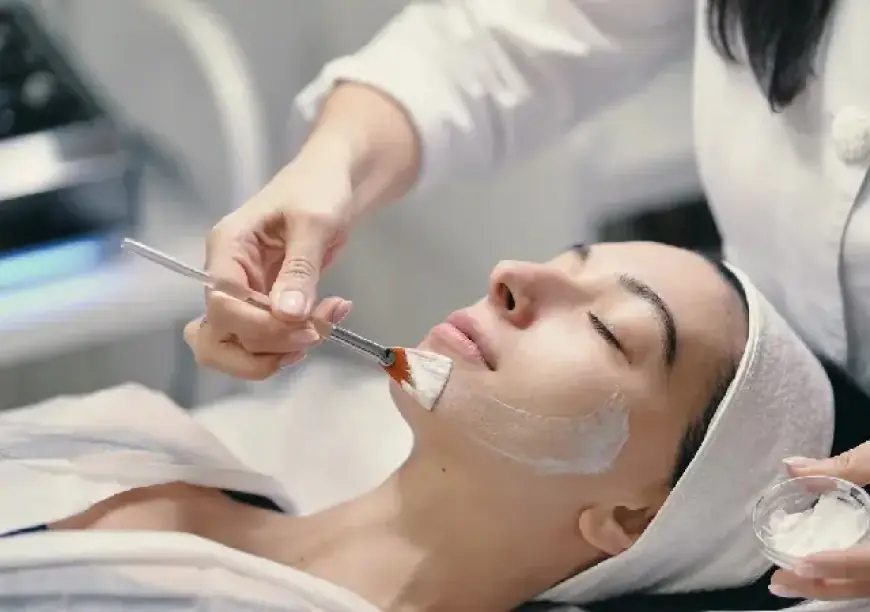Can Pregnancy Cause Skin Pigmentation?

Pregnancy is a beautiful journey, but it can bring surprising changes to the skin. Many women notice patches of darker skin appearing on the face, neck, abdomen, or other areas during pregnancy. This is commonly known as pregnancy pigmentation, and it occurs due to hormonal changes that stimulate melanin production. In some cases, this pigmentation fades after childbirth, but in others, it lingers and requires targeted treatments. For those looking for effective solutions, Glycolic Acid Peel In Dubai is often recommended for post-pregnancy skin renewal.
Understanding Pregnancy Pigmentation
Pregnancy pigmentation, medically referred to as melasma or chloasma, is caused by an increase in estrogen and progesterone levels. These hormones trigger melanocytes—the cells that produce melanin—to become more active. The result is darkened patches, typically on the cheeks, forehead, upper lip, and nose. This condition is sometimes called the “mask of pregnancy.”
Why Hormones Play a Major Role
Hormonal fluctuations during pregnancy are the primary cause of pigmentation changes. These hormonal shifts not only affect skin color but also influence skin sensitivity and oil production. The heightened melanin activity is the body’s way of protecting the skin from UV rays, but it also means more visible dark spots.
Common Areas Affected
-
Face: Especially the forehead, cheeks, and upper lip.
-
Neck: Skin here may appear uneven in tone.
-
Abdomen: A dark line, called linea nigra, often appears.
-
Underarms and Inner Thighs: These areas may darken due to friction and hormonal activity.
Risk Factors That Worsen Pigmentation
While pregnancy itself triggers pigmentation changes, certain factors make it more noticeable:
-
Sun exposure without proper SPF protection.
-
Genetic predisposition — if your mother or sisters had pigmentation during pregnancy, you might too.
-
Skin type — medium to darker skin tones are more prone.
-
Lack of skincare routine to prevent discoloration.
Can Pregnancy Pigmentation Be Prevented?
Complete prevention may not be possible, but it can be minimized:
-
Use sunscreen daily, even indoors.
-
Wear wide-brimmed hats when outdoors.
-
Use gentle cleansers to avoid skin irritation.
-
Incorporate vitamin C serums for brightening.
Treating Pregnancy Pigmentation
Most pregnancy pigmentation fades within months after delivery. However, for persistent pigmentation, dermatologists often recommend treatments such as:
-
Chemical peels to exfoliate and remove darkened skin cells.
-
Topical creams with ingredients like hydroquinone or kojic acid (only after breastfeeding if advised).
-
Laser treatments for stubborn pigmentation.
Cost Considerations for Pigmentation Treatments
The cost of pigmentation treatments varies depending on the method chosen, the number of sessions required, and the type of pigmentation. Professional treatments generally offer faster and more noticeable results than home remedies, but it’s essential to consult a qualified skin specialist before starting any procedure.
Role of Glycolic Acid Peel in Post-Pregnancy Pigmentation
Glycolic acid, derived from sugarcane, is a powerful alpha-hydroxy acid (AHA) that gently exfoliates the skin’s surface, encouraging new cell growth and reducing pigmentation. This makes it an excellent choice for post-pregnancy pigmentation when done under professional supervision. In fact, Glycolic Acid Peel Dubai treatments are popular for women seeking safe, effective skin renewal after childbirth.
Home Care Tips for Healthy Skin
-
Hydrate well to support skin healing.
-
Eat antioxidant-rich foods like berries, leafy greens, and nuts.
-
Avoid harsh scrubs that can irritate pigmented areas.
-
Be patient — skin changes take time to improve.
Final Thoughts
Pregnancy pigmentation is a natural and common occurrence, caused primarily by hormonal changes and made worse by sun exposure. While it may fade naturally for some, others may benefit from targeted treatments like glycolic acid peels, gentle brightening serums, and laser therapy. By combining proper sun protection, a healthy skincare routine, and professional treatments when needed, it’s possible to achieve a more even skin tone and regain post-pregnancy glow.
What's Your Reaction?
 Like
0
Like
0
 Dislike
0
Dislike
0
 Love
0
Love
0
 Funny
0
Funny
0
 Angry
0
Angry
0
 Sad
0
Sad
0
 Wow
0
Wow
0















































